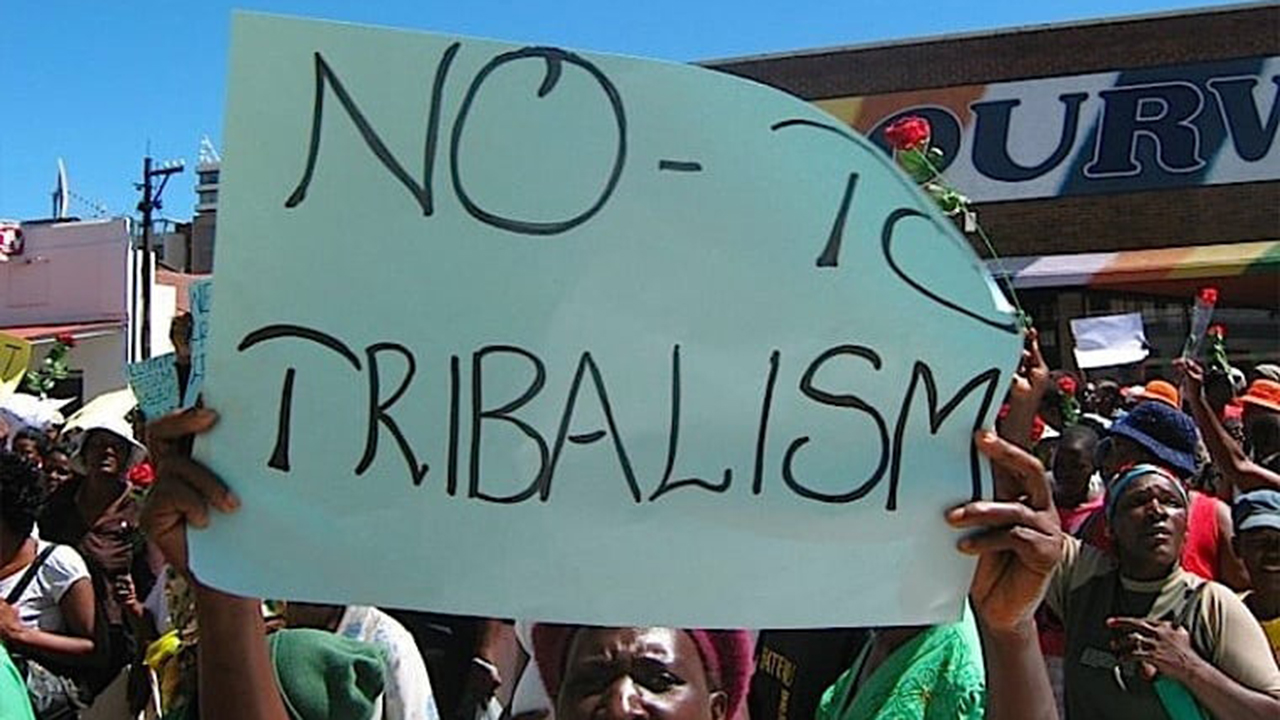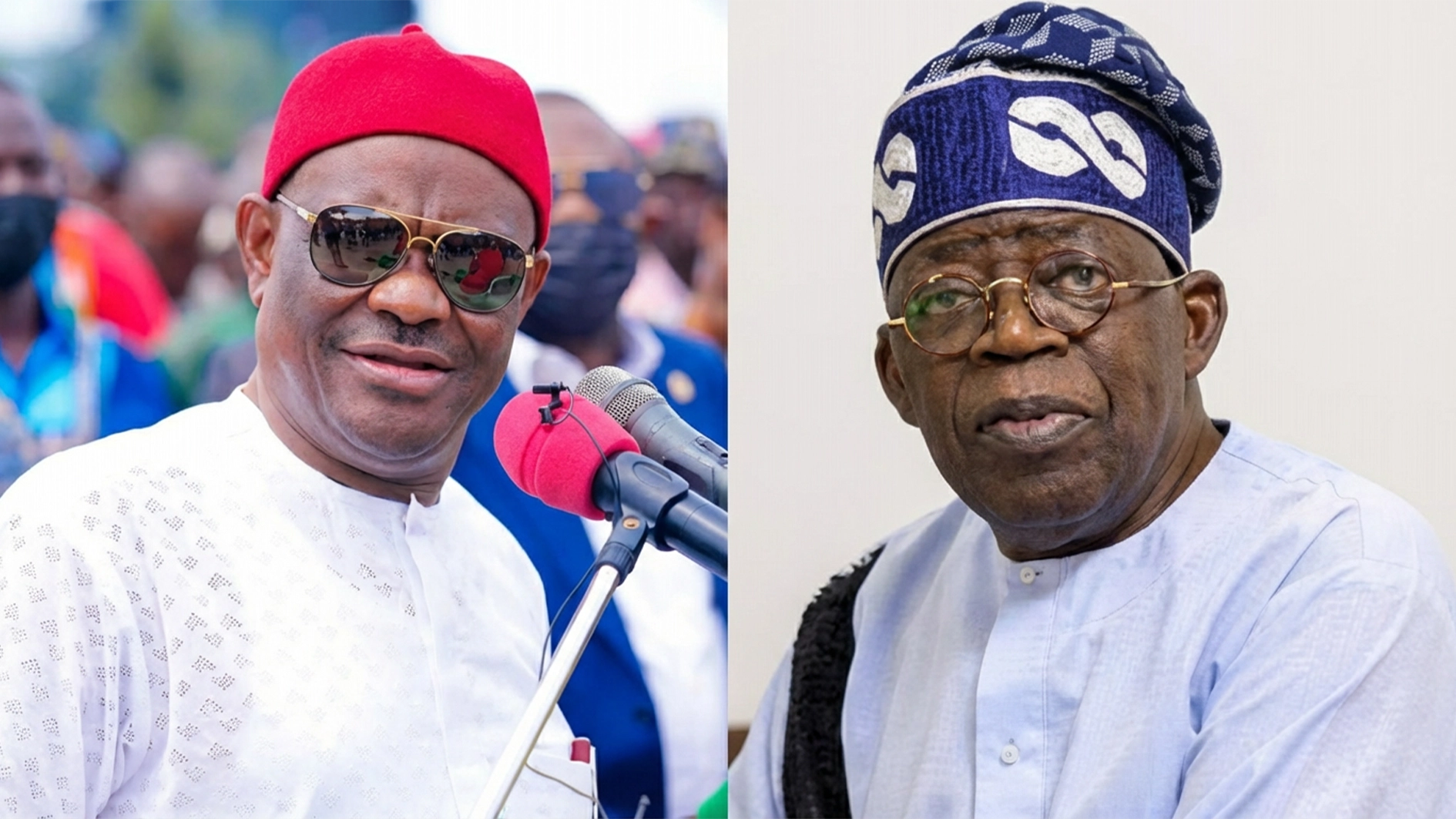
“Though tribe and tongue may differ in brotherhood we stand.”
…1st stanza, Nigerian National Anthem.
Nigeria is a country driven by tribalism in all areas of national life. No wonder the composer of our old national anthem highlighted diversity in tribe and the need to stand in brotherhood.
In his book “Western Education And Nigerian Cultural Background” Otonti Nduka in chapter VII wrote “ Tribalism was the root of the indigenous system of values. It was the group, the tribe, or the clan , which was the repository of the highest values in the indigenous cultures.
In 1902, the Sultan of Sokoto curtly informed Sir Fredrick Lugard that “there was no dealing between the Mussamans and unbelievers except war.’’
While in the Western System of values, the injunction to regard all human lives as sacred was theoretically, at least, universal in its applicability. . In indigenous Nigerian cultures, the applicability of the precept was severely limited by the horizon of the tribe and clan.”
From the foregoing, tribalism as an indigenous culture has become Nigerian albatross, that is, a thing that causes problem or something that prevents you from doing something simply because of the tribe one comes from not necessarily on the merit or otherwise of the case. In other words, many people in Nigeria operate within the horizon of their tribe. Let me share my personal experience in this context.
In 1991, I completed writing a 272 page book titled “Practical Banking Operations” which was eventually published in 1992. Being a professional banking book, the publishing consultant, Longman advised me to take the typeset copy to the professional banking body for assessment. So I submitted the book to the office of the President, Chartered Institute of Bankers of Nigeria. I was surprised when tribalism played out.
I am an Igbo man. The President at the time was from another dominant tribe. (name withheld to honour his spirit, which is resting in peace). After reading the book, he invited me for assessment interview. He praised the book to high heavens. He too wrote a book on the same subject and had a publishing company. He suggested it will be nice if his company published my book since they previously published Elements Of Banking written by him. I told him I had a publisher already. His countenance changed.
In anger he asked “when did Igbo stop selling motor spare parts at Idumota Lagos Island market to start writing banking books?’’ He minuted on the file cover “K.I.V”… Keep In View and passed it on to the Director of Training And Consultancy who happened to be an Igbo man with a PhD. That’s how my tribe became a liability to me.
When I was made the Head of Training And Development at Crystal Bank of Africa, I went to Chartered Institute of Bankers at Yaba to inquire about foreign training institutions on Credit and Treasury Management. That was how I met this Igbo man with PhD. It turned out that he was my senior at Methodist College Uzuakoli, Abia State leaving in 1965 while I was admitted in 1967.
He ushered me into his office and after exchanging pleasantries , he brought the file and asked me, are you the Chris Enyinnaya that wrote this book?” I replied “yes.” Shaking his head , he said “you have a problem. Your problem is that you have written a better book than the President and he does not want to approve it. Take this book to Prof Green Nwankwo at University of Lagos, he is a Past President and will be willing to help.”
I went straight to the University of Lagos and met Prof Green Nwankwo, a professor of Banking and Finance and he welcomed me. After listening to me, he told me that he is happy that his fellow Igbo man has written a book on banking. He took the book and told me he was proceeding on a six months sabbatical leave and will have enough time to go through the book.
On his return he invited me to his office at Union Bank, Marina where he was the Chairman Board of Directors of the bank. After reading the book, he wrote the foreword and asked me to go and publish the book. He further said “when they see my name, they will respect the book.”
Here my tribe became an asset. The book which was published in 1992 became the “saviour” of students writing Practice of Banking examination of the Chartered Institute of Bankers of Nigeria. This book would not have seen the light of the day because of tribalism.
Returning to the Nigerian scene where one tribe seeks to suppress another, for how long will tribalism continue to dictate the fortune of our citizens negatively or positively? For how long shall we continue with tribal assets and liabilities management?
Sometime ago, many of us were shocked to hear from a former two term Governor of Ekiti State who is a staunch member of opposition, Peoples Democratic Party, that he supported Senator Bola Ahmed Tinubu to become President because he is Yoruba.
Another politician, a candidate in the 2023 Presidential election said on social media that there is a written agreement that an Igbo will never be President of Nigeria.
When tribalism becomes a national policy, shall we ever make progress? For the avoidance of doubt, policies like federal character, state of origin, catchment area are all efforts to make tribalism a national policy. All these are aimed at denying deserved opportunities to some Nigerians while creating undeserved opportunities for others.
These policies create restiveness among the youths who are the future of Nigeria. Just imagine, two youths write JAMB examination, one scores 70 per cent, the other scores 40 per cent. The one that scored 40 per cent is given admission while the one that scored 70 per cent is denied admission based on tribe. Creating inequity among the youths of a country is the easiest way to create disunity in the country.
It remains to be added that without tackling tribalism, the present attempt by the Federal Government to enthrone national unity through the National Orientation Agency is a waste of public funds and an orchestrated exercise in futility.
You cannot enthrone national unity through executive fiat or propaganda. You enthrone national unity by creating a just and equitable society. A society that that distributes opportunities based on tribe and religion is like George Orwell’s classic book of irony, Animal Farm. “All animals are equal but some are more equal than others.”
The time has come when Nigerians should not vote tribal champions to power. It is instructive that these ethnic champions are influenced by the philosophy of our colonial masters that enthroned a culture of “no system of ethics and no principle of morality” in our political space. That is why our political parties have no ideology. In this connection, according to Benard Shaw,”There is nothing so bad or so good that you will not find English men doing it, but you will never find an English man in the wrong. He does everything on principle. He fights you on patriotic principles, he robs you on business principles, he enslaves you on imperial principles.”
The effect of tribalism on Nigerian society is an ill wind that blows no body no good. That is why every Nigerian is complaining because we are all victims of tribalism one way or the other. TRIBALISM as state policy has made a jungle out of Nigeria. Nigeria has become an unfriendly, if not a dangerous place where it is very difficult to be successful or trust anyone, especially with power.
Are you surprised that citizens have lost faith in their leaders and their country because of tribalism? A country where tribalism creates different strokes for different folks urgently needs moral regeneration. But who will bell the cat?
Is it the political leaders that use tribalism as a campaign strategy to win an election or the Presidents that, contrary to constitutional provisions give juicy and Strategic positions to his tribesmen and tribes women? Sadly, Ex-President Muhammadu Buhari started it. Now, President Bola Ahmed Tinubu is perfecting it.
Worse still the National Assembly that have oversight function on the executive arm of government is abdicating their responsibilities. The executive is behaving as if Nigeria is a country without constitution and without laws for orderly conduct of the society. May Almighty God heal our land of tribal oriented leaders.
Enyinnaya is Fellow Chartered Institute of Bankers. He can be reached via: [email protected]






